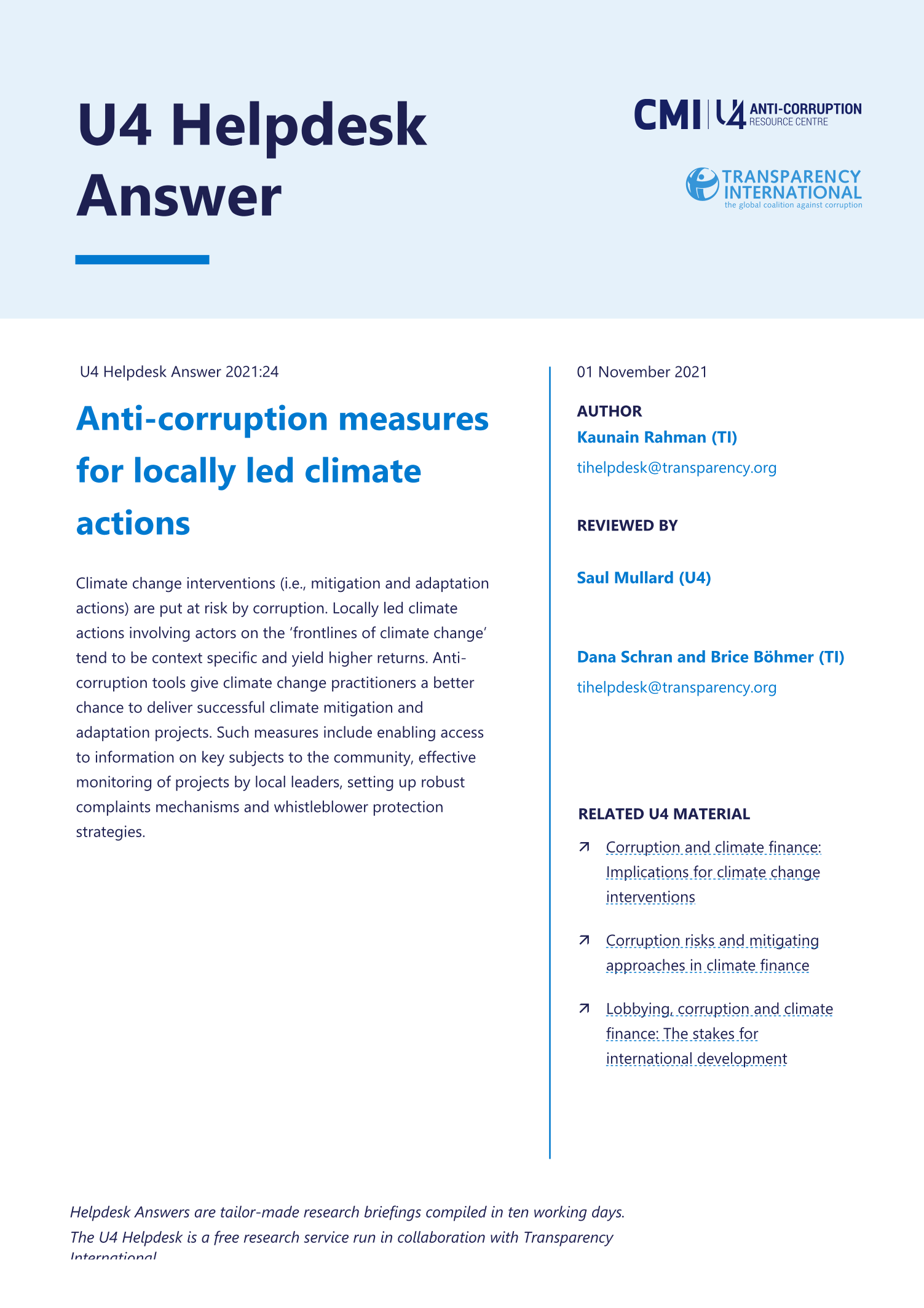Main points
- Locally led climate actions are particularly important as they are informed by first-hand local knowledge which is foundational to designing and implementing successful adaptation strategies.
- Anti-corruption tools give climate change practitioners a better chance to deliver successful climate mitigation and adaptation projects.
- Illustrative anti-corruption measures that can be applied to locally led climate actions include but are not limited to encouraging public participation, using social accountability tools, streamlining climate finance, and focusing on monitoring, learning and evaluation (MEL), amongst others.
- Locally led climate actions need to consider voices of vulnerable groups and recognise appropriate focus areas for interventions from the start to be effective.



